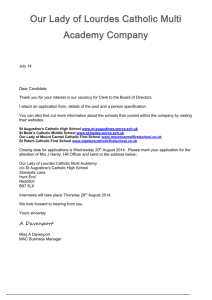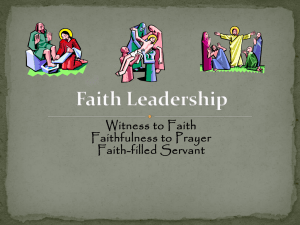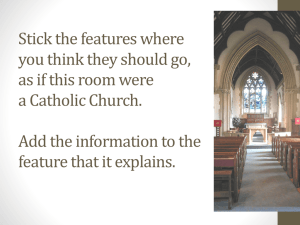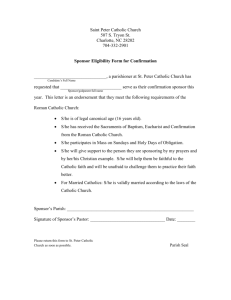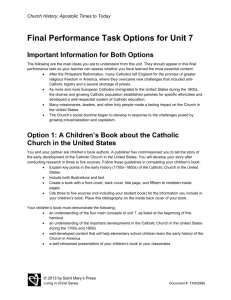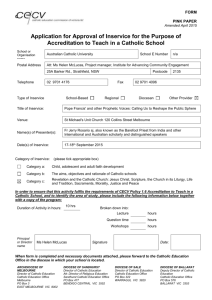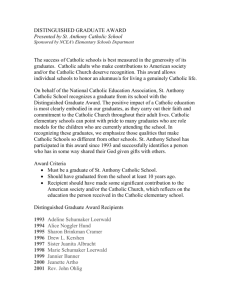The Catholic Physician Is In - Dr. Jerome Lejeune Guild of Northeast
advertisement
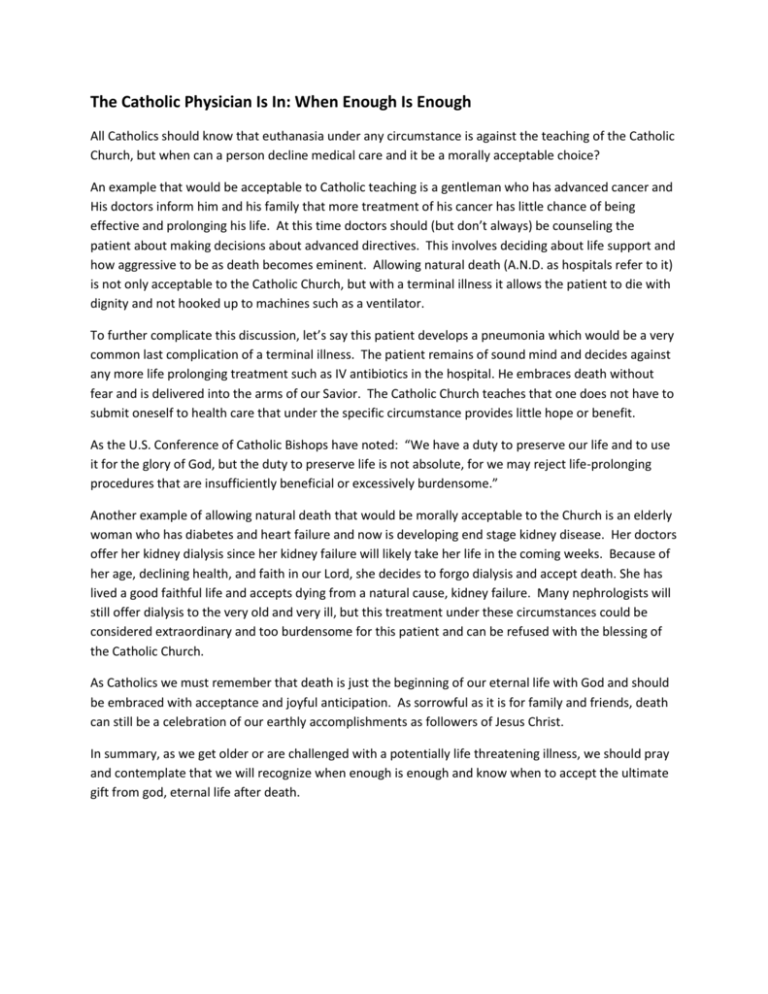
The Catholic Physician Is In: When Enough Is Enough All Catholics should know that euthanasia under any circumstance is against the teaching of the Catholic Church, but when can a person decline medical care and it be a morally acceptable choice? An example that would be acceptable to Catholic teaching is a gentleman who has advanced cancer and His doctors inform him and his family that more treatment of his cancer has little chance of being effective and prolonging his life. At this time doctors should (but don’t always) be counseling the patient about making decisions about advanced directives. This involves deciding about life support and how aggressive to be as death becomes eminent. Allowing natural death (A.N.D. as hospitals refer to it) is not only acceptable to the Catholic Church, but with a terminal illness it allows the patient to die with dignity and not hooked up to machines such as a ventilator. To further complicate this discussion, let’s say this patient develops a pneumonia which would be a very common last complication of a terminal illness. The patient remains of sound mind and decides against any more life prolonging treatment such as IV antibiotics in the hospital. He embraces death without fear and is delivered into the arms of our Savior. The Catholic Church teaches that one does not have to submit oneself to health care that under the specific circumstance provides little hope or benefit. As the U.S. Conference of Catholic Bishops have noted: “We have a duty to preserve our life and to use it for the glory of God, but the duty to preserve life is not absolute, for we may reject life-prolonging procedures that are insufficiently beneficial or excessively burdensome.” Another example of allowing natural death that would be morally acceptable to the Church is an elderly woman who has diabetes and heart failure and now is developing end stage kidney disease. Her doctors offer her kidney dialysis since her kidney failure will likely take her life in the coming weeks. Because of her age, declining health, and faith in our Lord, she decides to forgo dialysis and accept death. She has lived a good faithful life and accepts dying from a natural cause, kidney failure. Many nephrologists will still offer dialysis to the very old and very ill, but this treatment under these circumstances could be considered extraordinary and too burdensome for this patient and can be refused with the blessing of the Catholic Church. As Catholics we must remember that death is just the beginning of our eternal life with God and should be embraced with acceptance and joyful anticipation. As sorrowful as it is for family and friends, death can still be a celebration of our earthly accomplishments as followers of Jesus Christ. In summary, as we get older or are challenged with a potentially life threatening illness, we should pray and contemplate that we will recognize when enough is enough and know when to accept the ultimate gift from god, eternal life after death. -Dr. Kaminskas is a board-certified cardiologist and member of Lutheran Medical Group who has practiced in Fort Wayne since 1982. He is a member of the local Catholic Medical Association: The Jerome Lejeune Guild of Northeast Indiana. Reprinted with permission from Today's Catholic newspaper, Diocese of Fort Wayne-South Bend.

